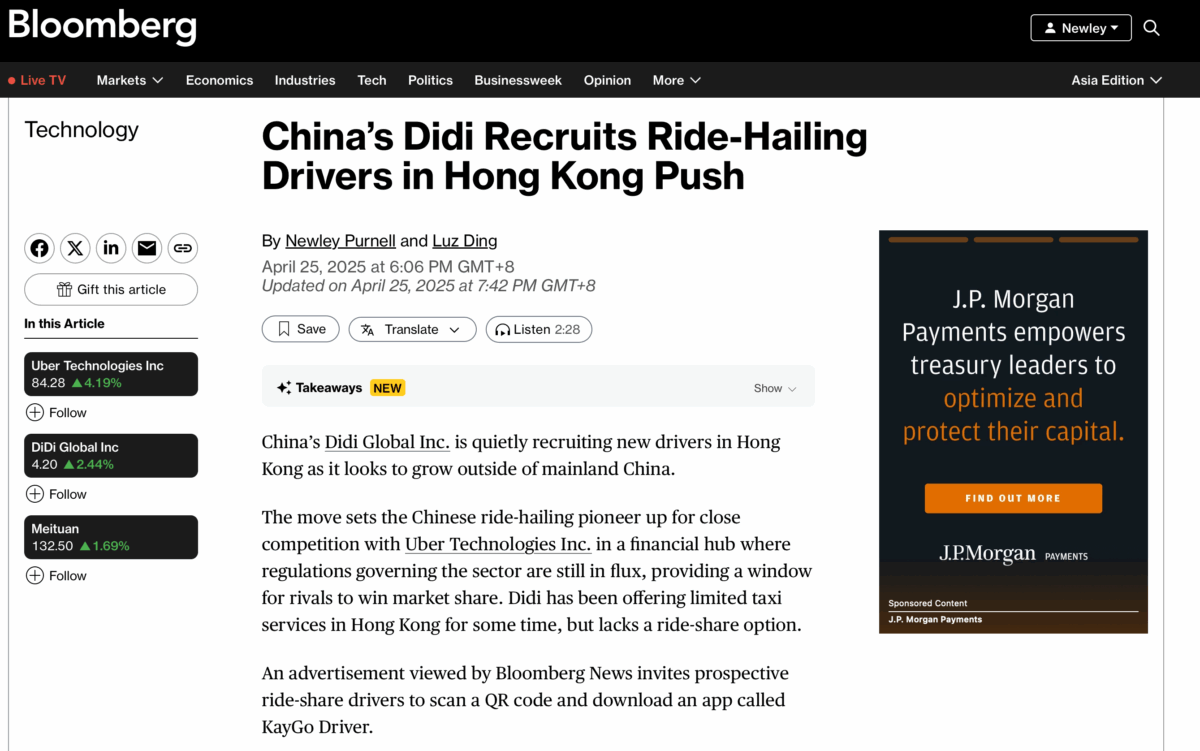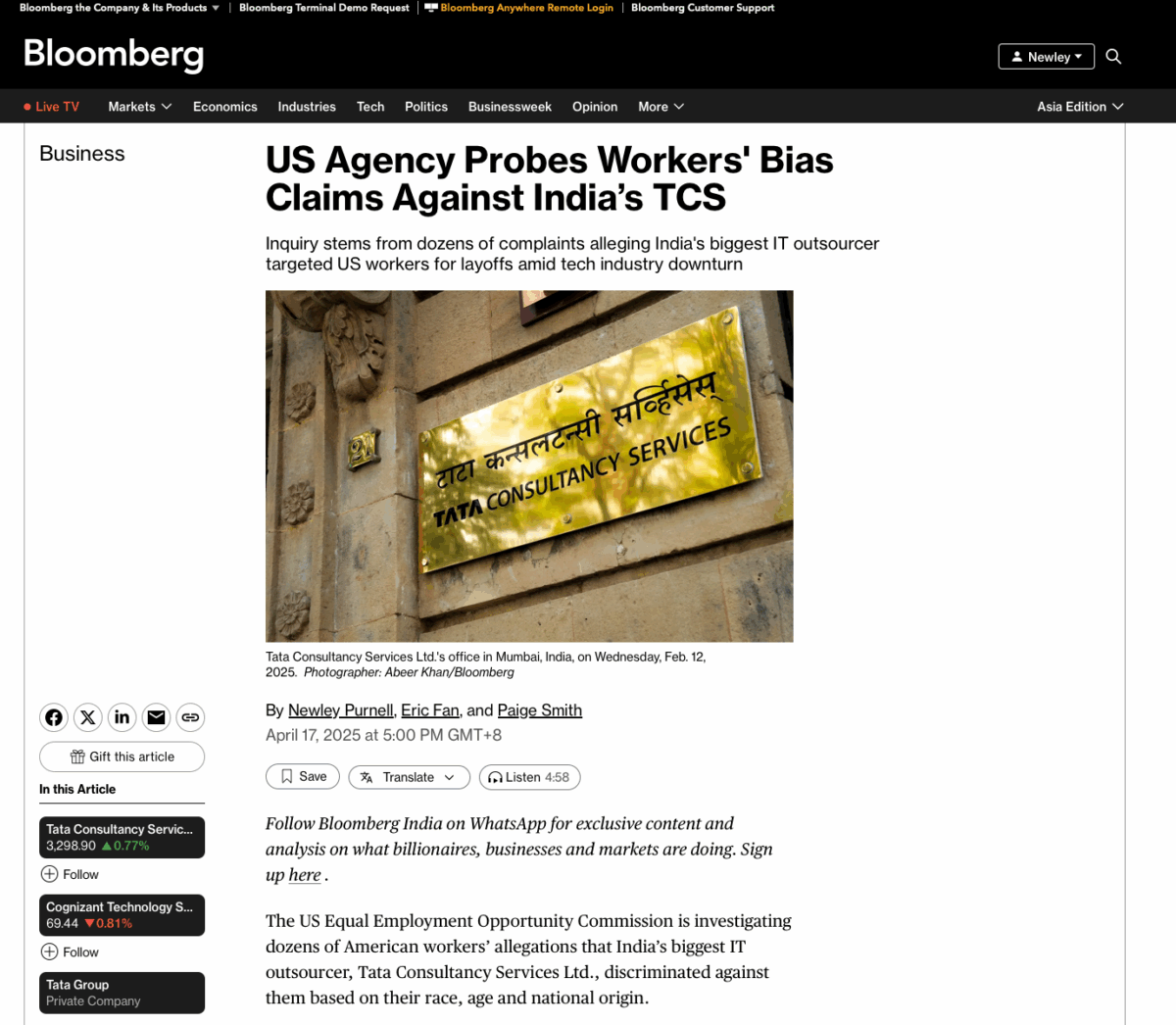Sent as a newsletter on Oct. 21, 2025. Not on my list? Sign up here.
👋 Hi friends,
Welcome to the latest edition of Newley’s Notes, a newsletter containing my recent Bloomberg stories, must-read links on tech and life, and funny dog videos.
Painting of the week, above: Watercolor No. 73, Blue And Lavender (1928), by Allen Tucker
Here are 10 items worth your time this week:
1) 👉 Our latest on Builder.ai, with my stellar Bloomberg colleagues Yazhou Sun and Mark Bergen, out yesterday: Builder.ai Ex-CFO Subpoenaed in US for Auditor Communications <– 🎁 gift link. It begins:
US investigators are advancing a criminal probe into Builder.ai, demanding a former executive’s communications with the firm’s UK auditor and with others involved in the financial reporting for the artificial intelligence startup ahead of its June bankruptcy.
2) 🎥 RIP Diane Keaton.
3) 🚗 Bloomberg CityLab review: three new books on the plague that is “car brain.” <– 🎁 gift link.
4) ⚽ Playing at the World Cup in the US, Canada and Mexico this summer: Cape Verde. Believe it.
5) 💯 “The 25 Most Influential Magazine Covers of All Time.”
6) 📚 Eighteen writers and critics — people who read a lot — on how they make time for books.
7) 🏍️ Travel story of the week: motorbiking Vietnam’s Ha Giang Loop. (Thanks, PB.)
8) 🏕️ Outdoor video of the week: “A Week Camping Alone on the Notorious Sixth Great Lake.”
9) 💸 50 Cent, adjusted for inflation.
10) 🐕 Dog video of the week: “Made me giggle 🤭.”
•••
💡 Quote of the week:
“Never let the future disturb you. You will meet it, if you have to, with the same weapons of reason which today arm you against the present.” — Marcus Aurelius
•••
🤗 What’s new with you? Hit reply to send me tips, queries, random comments, and videos of canines doing The Hustle.
•••
👊 Fist bump from Hong Kong,
Newley









